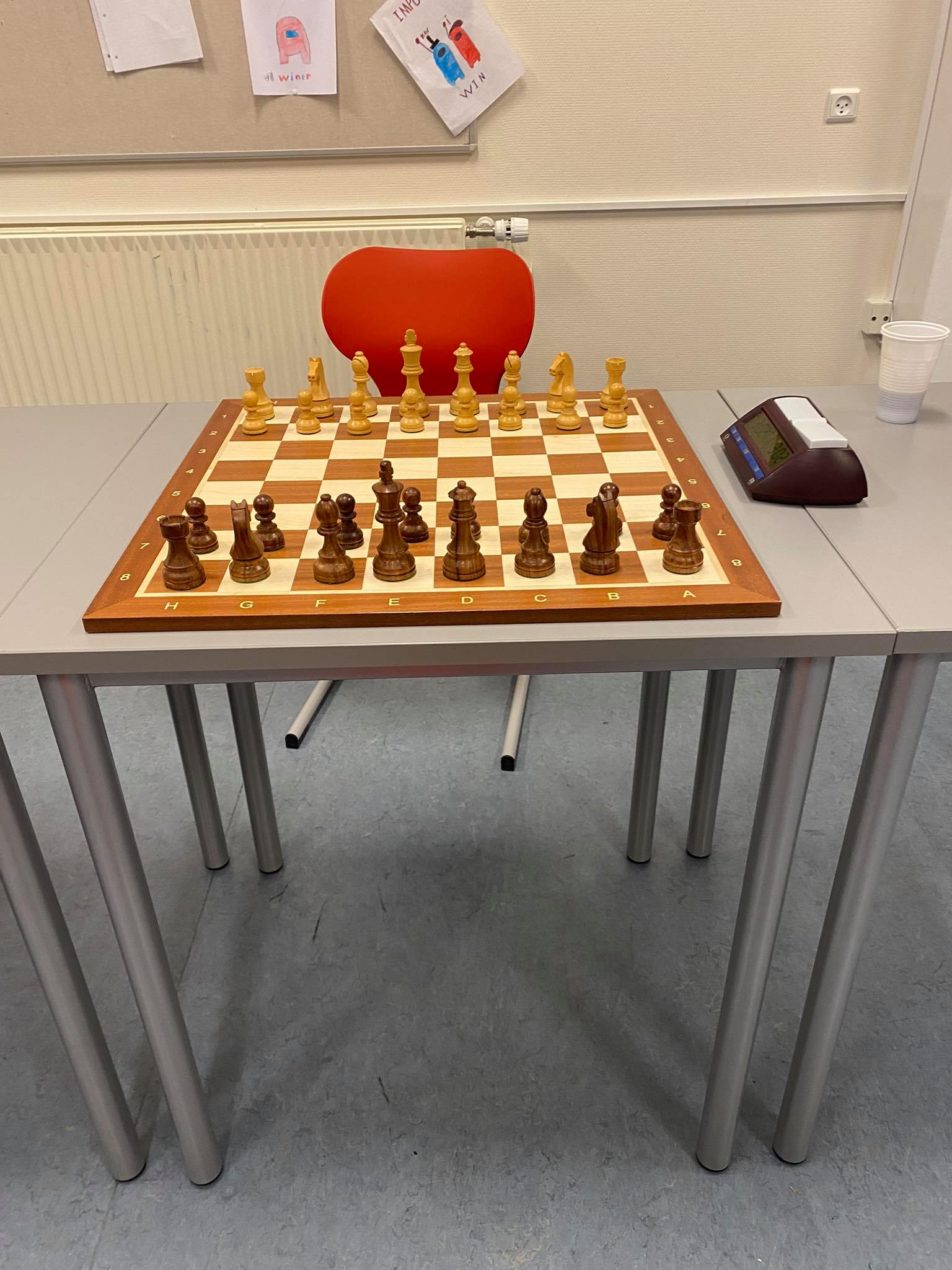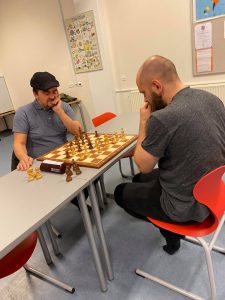
Chess is war – An evening with the chess club
This article was originally published in October 2020.
Chess, as we know it today, originated from similar board games played in Asia around 600 CE. These games all have the same goal. Throughout history, they have been used as simulations of battles. The player acts as the general whose goal is to trap the opposing king, leaving him nowhere to escape. Checkmate!
Autumn is when local chess players head to Eiði school to practice for the upcoming season. Members are in high spirits, and I feel as if I’m stepping into a world of endless possibilities and theories.
there are 64 squares on a chessboard, leading to plenty of possible moves before you touch the first piece, and the possibilities increase with each move. It is this that both draws people to the game, as well as what makes people give it up.
Just as I entered the room, I was asked to sign up for the training games, and even though I politely declined, it was not long before I found myself in front of a chessboard. It quickly became apparent that I’m no great general.

Club members engaged in a practice game.
The club has 20 members with twenty more members expected to join shortly. Practice sessions will take place in Eiði and Oyrarbakki.
The chairman of the club is Rógvi Egilstoft, and he had this to say when asked about the current situation within the club:
– Things are positive at the moment. We held a general meeting and established a board. We have two teams competing in their respective groups in the 3rd division, and both teams are currently in 3rd position. In time, we hope that either team is promoted. We could have a 3rd team, but then there would most likely be a personnel issue. In terms of goals for the club, we are trying to grow our membership and wish to include all of the Sundalagi area.
-The main goal for us is to keep the club going. There is always a danger of a club like this falling apart after a short time, as we know from previous attempts to start a chess club.
Rógvi Egilstoft has plenty of experience within the world of chess, winning the title of FIDE master. I asked him what is needed to achieve this title.
– I’m not sure I can tell you exactly what is needed to gain this title, as there is no clear recipe for success. You have to play a lot of chess over many years to gain a FIDE rating between 2300-2400. Then you have to keep practicing to maintain your rating, and compete in international competitions.
Is there an interest for chess in the local area?
– There are plenty of chess players here, but we could perhaps do a better job of attracting them to the club. Given the oppertunity, I’m sure more people will join us.
Do you have any advice for people starting out in chess?
– It can seem daunting at first, but you just need to start. There are plenty of options online for learning the basics of chess. You don’t need to read books on chess theory to get started. Just play chess, and the rest will follow.
Can the skills gained through chess be put to use in daily life?
– In chess, concentration and logical thinking is key. These might be skills that people can use in their lives away from chess. Time flies by during a game, and you have to decisions within a few seconds.
Finally, i ask Rógvi if he has a message for our readers.
– I’ll mention that we play every tuesday at 20:00, and we wish to grow our membership numbers. People might be hesitant to join, due to their lack of skills, but we do not have any prerequisit for skill level. We have seen players that started here 2-3 years ago blossom as chess players, so anyone is welcome to join!
You can find the club on Facebook under the name “Talvfelagið Rókur”.




